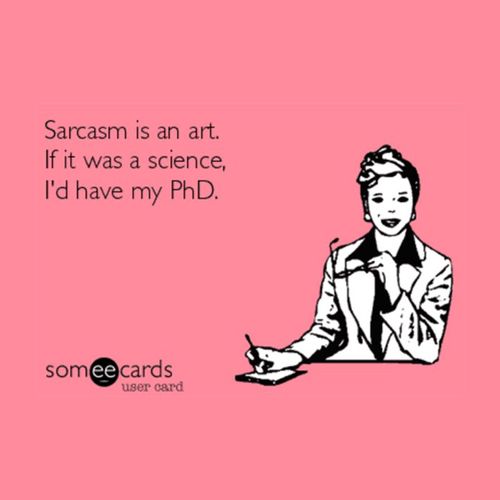Some people cannot comprehend sarcasm, and Israeli researchers believe the reason is because a specific region of the brain has been damaged.
The Study
Study co-author Simone Shamay-Tsoory, a researcher at the University of Haifa, Israel, and her colleagues enrolled 58 subjects—25 participants had prefrontal-lobe damage, 17 were healthy and 16 had damage to the posterior lobe of the brain.
They evaluated all of the participants by exposing them to several "neutral" and sarcastic comments recorded by actors as part of a story. For example, actors read phrases such as "don't work too hard in both a neutral, or literal, tone (meaning "you're a hard worker") and in a sarcastic tone (meaning "you're a real slacker"). Each comment came in proper context as part of a story.
This test was designed to gauge how well the subjects could comprehend sarcasm.
Everyone understood the sarcasm except for those who had prefrontal damage. Among those, people who had damage to a specific section of the prefrontal lobe, known as the ventromedial area, had the most difficulty deciphering the sarcasm.
Implications
The researchers think lesions in several parts of the brain can contribute to an inability to understand sarcasm.
But, they say, the prefrontal area is particularly important because it is responsible for the innate recognition of other people's emotions, or empathy. This area is also responsible for the ability to use past experiences to comprehend a speaker's intentions.
If that part of the brain is damaged, the person has difficulty detecting hidden meaning and sarcasm, the scientists report.
"People with prefrontal brain damage suffer from difficulties in understanding other people's mental states, and they lack empathy," explains Shamay-Tsoory. "Therefore, they can't understand what the speaker really is talking about, and get only the literal meaning."
The study findings could help rehabilitation centers do a better job of teaching brain-damaged patients to understand other people, he says.
The Science of Emotion
Brian Knutson, an assistant professor of neuroscience at Stanford University, says the findings reflect a growing interest in how emotion is processed by the brain.
"Emotion has not been a popular topic in science for a long time," because it is difficult to measure, he says, but that may be changing.
High Blood Pressure Dulls Emotions
High blood pressure may dull a person's emotional response, helping him/her cope with intense psychological stimulation by limiting his reactions, say researchers.
This conclusion comes after Clemson University researchers monitored the blood pressure of 65 volunteers as they showed them a series of photographs intended to elicit either a positive or negative emotional response. The volunteers rated their reactions to the photographs on scales of "happy to unhappy" and "calm to excited."
The problem: "If those with higher resting blood pressure perceive their environment as less threatening, they may stay in stressful situations longer. Likewise, they may seek out greater levels of excitement," says study author Cynthia Purdy.
Previous research found that high blood pressure reduces sensitivity to pain.
